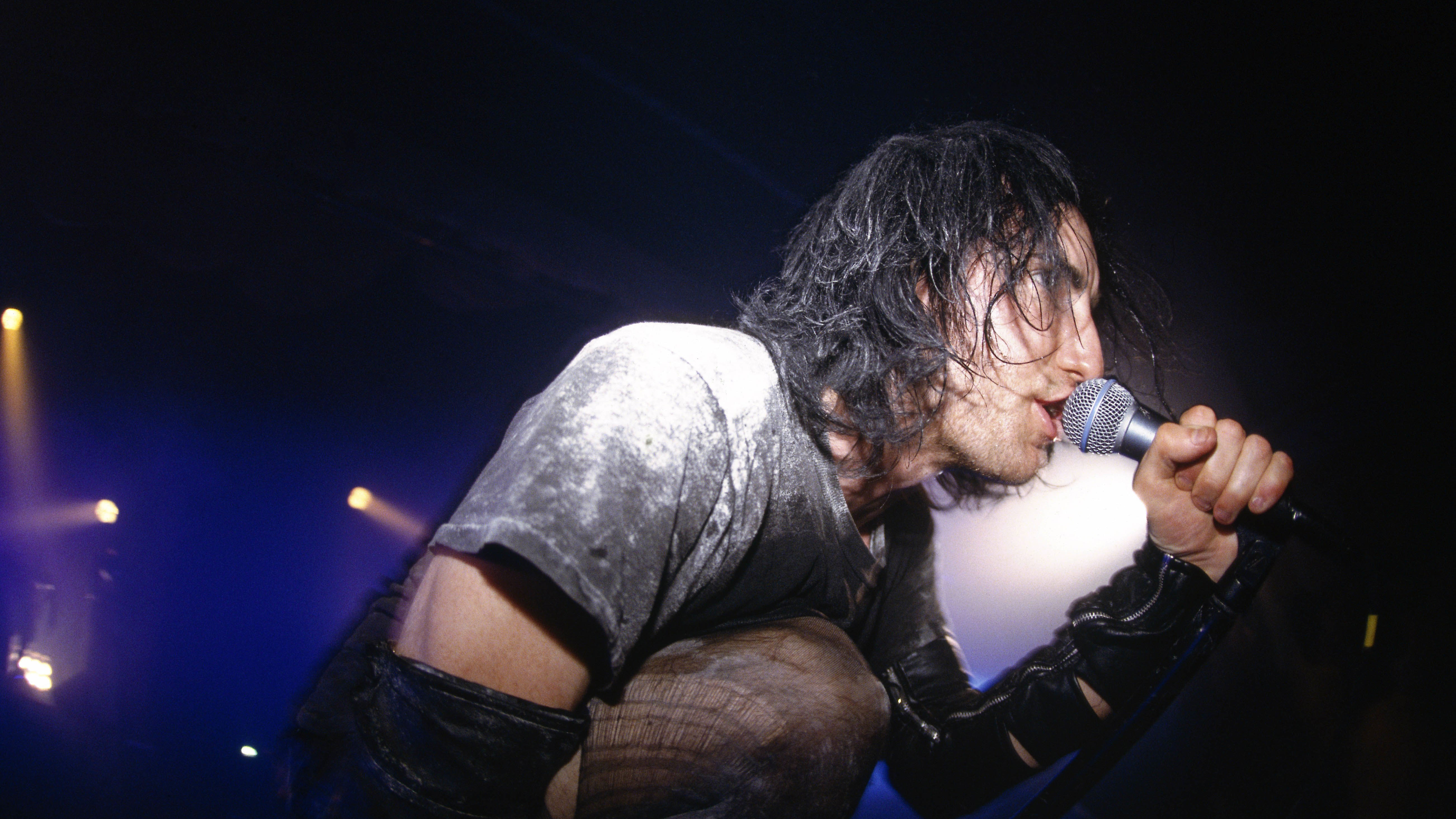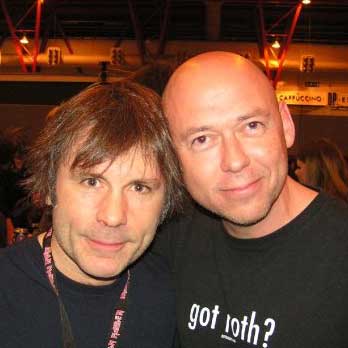“The Downward Spiral became a self-fulfilling prophecy. I wound up distorted – someone I didn't know”: As Nine Inch Nails’ classic album was selling by the million, Trent Reznor was losing his mind
"I was really in a low emotional place," he said

In 1997, Trent Reznor was named among Time magazine's 25 Most Influential Americans. But Reznor, the visionary leader of Nine Inch Nails, almost quit the music business at the height of his success in that decade.
In a 1999 interview with Kerrang!, he revealed that he had experienced something akin to a nervous breakdown after Nine Inch Nails’ 1994 album The Downward Spiral sold five million copies.
Reznor began this interview by recalling how he fell in love with music as a child growing up in the small town of Mercer, Pennsylvania.
“I was so determined to escape rural Pennsylvania,” he said. “There was so little to do there. I go back now and I see some of the beauty of it, but as a kid, it just provided me with the drive to escape.”
In his early teens, Reznor began piano lessons at the insistence of his grandparents.
“I'm not sure why they forced me into that,” he said, “but I'm glad they did. It clicked with me immediately. My whole life, I always knew what I wanted to do – playing music and being a rock band.”
He had been frustrated living in Mercer.
Want all the hottest music and gear news, reviews, deals, features and more, direct to your inbox? Sign up here.
“You're so far removed from what's on the TV set,” he recalled. “It was an impenetrable gap.
“I was always pissed off about that, because it looked like everybody was having fun on TV, everyone's smiling and happy. And there's an ocean that I didn't even see until I was 18.
“There's shit going on, but I'm looking out at a fucking cornfield! Our big event was going to McDonald's. Wow! I felt ripped off.”
It was after he recreated to Cleveland that Reznor formed his first band.
He ended up working in recording studios, often having to undertake menial tasks such as cleaning toilets.
When he turned 23 he began writing songs in earnest. At that time he was heavily influenced by the proto-industrial rock of Cabaret Voltaire and Skinny Puppy.
Among Reznor’s earliest songs were those that would form the first Nine Inch Nails album, Pretty Hate Machine, which was released in 1989.
Reznor told Kerrang! how he had worried about revealing too much of his own life in his lyrics on that album.
“I opened up my journal,’ he said. “It was full of bad feelings. Honest feelings.
“At first I thought, I can't fucking say these things, but I also realised it was this honesty that made it important. That outweighed the fear of exposing my true feelings to everybody.
“I wasn't proud of a lot of the things I was saying, but I said to myself, ‘Well, no one's going to hear this stuff anyway!’
“Then Pretty Hate Machine does well, and suddenly I'm doing interviews and I haven't created a character to the hide behind."
One of the key songs on Pretty Hate Machine was Something I Can Never Have, in which Reznor sang, “I’m starting to scare myself,” before stating, “Grey would be the colour if I had a heart..."
As Reznor said: “The record is honest, and that's where its power came from.”
Back in 1989, when Guns N’ Roses were the biggest band in the world and grunge was still gestating in sweaty Seattle clubs, the realism and emotive power of Reznor’s lyrics, allied to a dynamic new form of electro-rock, made Nine Inch Nails unique.
The second Nine Inch Nails album, The Downward Spiral, arrived in 1994, preceded in 1992 by two EPs – Broken and its sister remix set Fixed.
The Downward Spiral brought industrial music into the mainstream rock consciousness. It also created huge demand for Reznor’s talents as a producer.
When Nine Inch Nails’ world tour was completed in 1995, Reznor immediately went to work on producing Marilyn Manson's Antichrist Superstar album at his home studio in New Orleans. Previously, he had produced Manson's album Portrait Of An American Family and the mini-album Smells Like Children.
Reznor also acted as executive producer on the soundtrack to Oliver Stone's controversial 1994 movie Natural Born Killers, and in 1997 he produced the soundtrack for David Lynch's Lost Highway, for which he supplied the NIN track The Perfect Drug.
But as Reznor told Kerrang!: “Working really hard had brought me to this state of despair, emotionally and spiritually.
“The Downward Spiral became a self-fulfilling prophecy. I wound up distorted – someone I didn't know.
He continued: “Finishing a long tour for that record, I found myself at a weird place. Everything was different to when I got on that tour bus a few years before – more people kissing your ass and more wanting you to fail.
“Then I went right into doing another Manson record, which was a way of staying on tour, mentally. Every night was some ridiculous scenario. When that finished, I was really in a low emotional place, disillusioned.”
This was why he delayed work on the third Nine Inch Nails album, The Fragile.
“I avoided doing a new record because I'd forgotten that I really liked playing and making and listening to music,” Reznor said. “All the other shit that's around it – the good stuff and the bad stuff – clouded the reason I was doing it in the first place.”
He admitted that he considered quitting music altogether, recalling: “It really came down to me thinking, 'Do I really want to keep doing this?’ I don't know anybody who's just stopped when they were at the height of their career, other than those who killed themselves, which I wasn't wanting to do.”
But in the end, with The Fragile, Reznor created what many consider to be his masterpiece. And he gave one very simple reason for this.
“It was about remembering that I like music.”

Paul Elliott has worked for leading music titles since 1985, including Sounds, Kerrang!, MOJO and Q. He is the author of several books including the first biography of Guns N’ Roses and the autobiography of bodyguard-to-the-stars Danny Francis. He has written liner notes for classic album reissues by artists such as Def Leppard, Thin Lizzy and Kiss. He lives in Bath - of which David Coverdale recently said: “How very Roman of you!”
You must confirm your public display name before commenting
Please logout and then login again, you will then be prompted to enter your display name.


